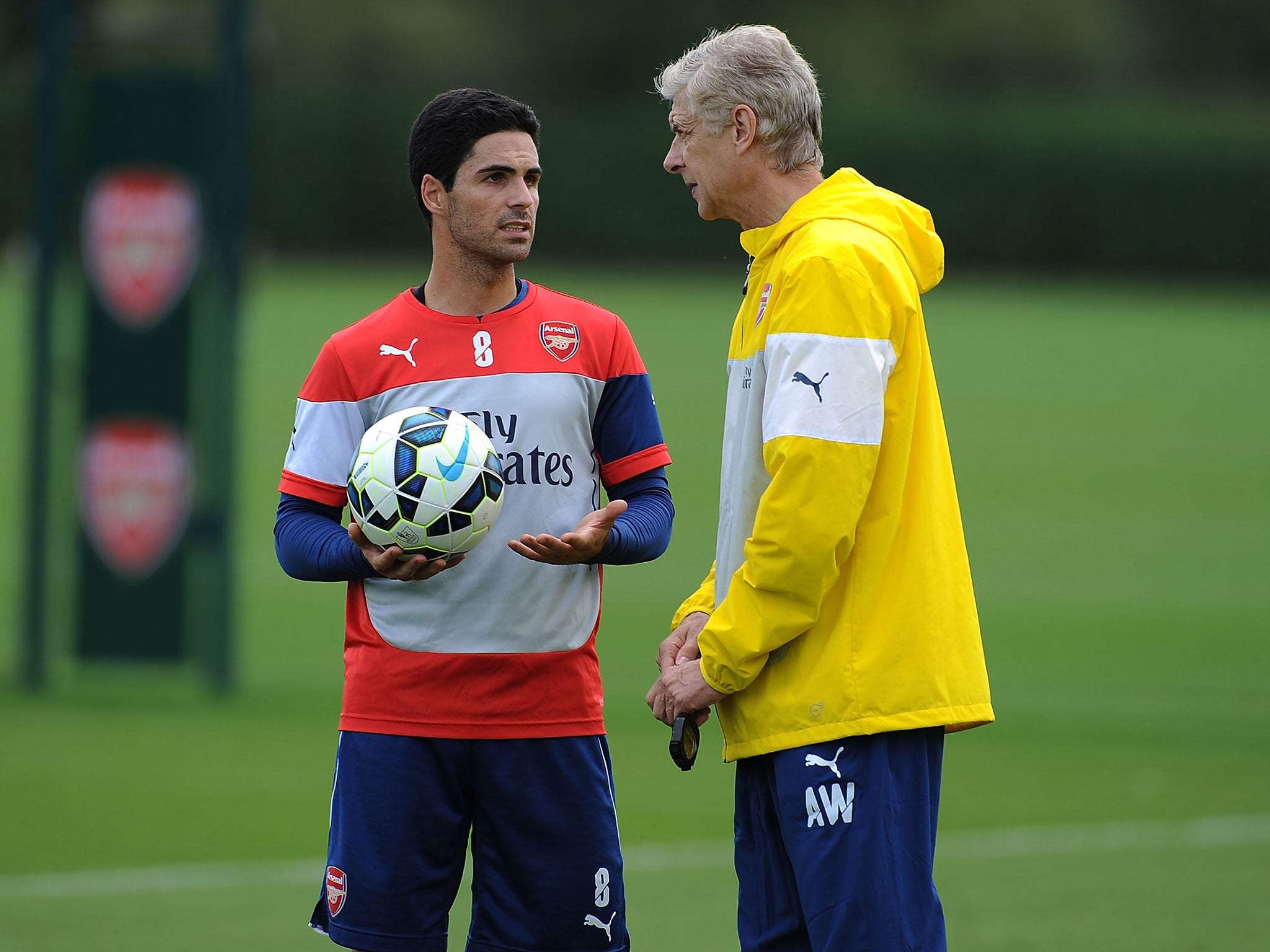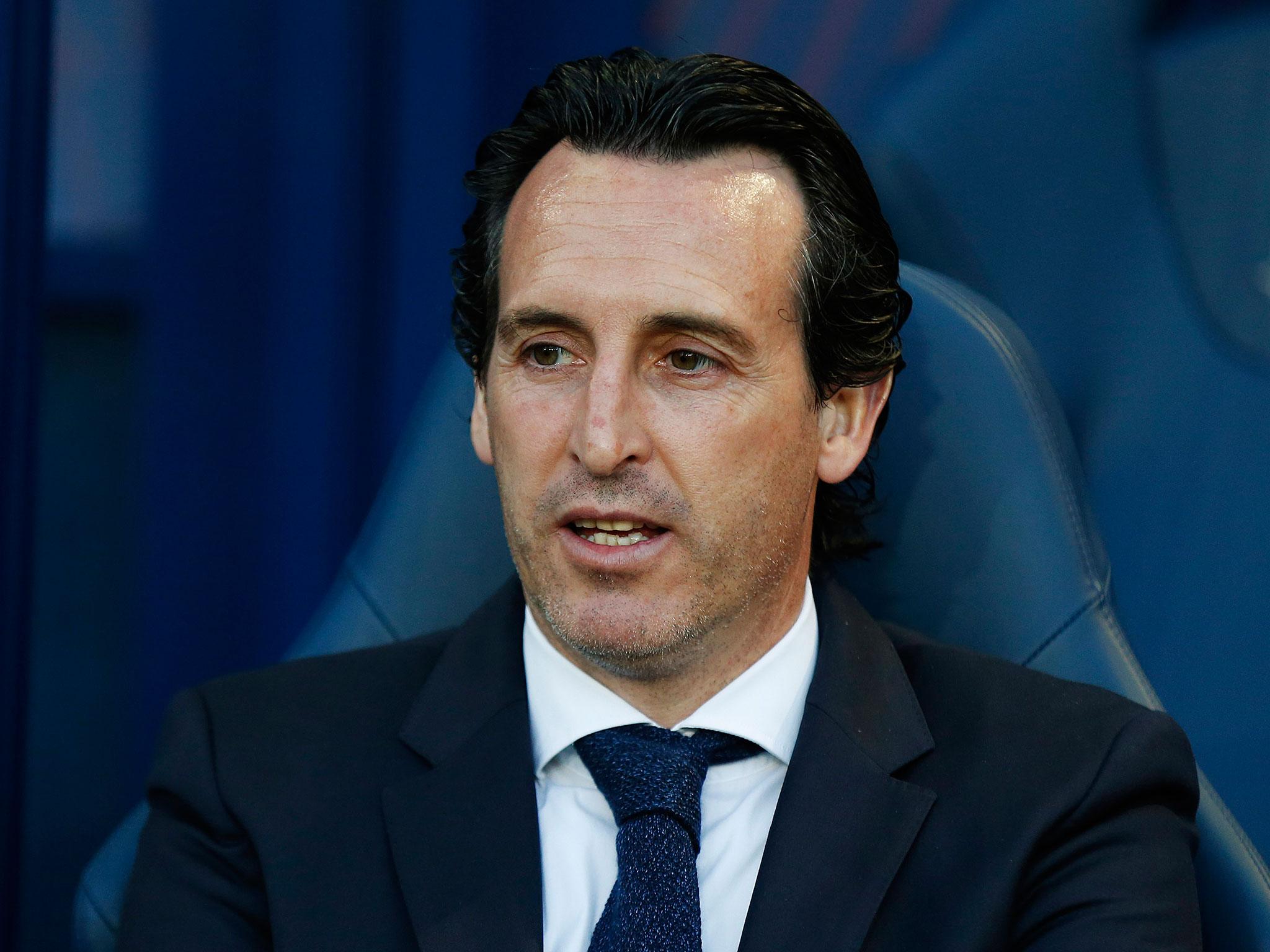Arsenal promised to be bold and brave in replacing Arsene Wenger - so why weren't they?
There is a clear sense among fans that the club was on the cusp of something unusual, exciting and innovative, and now they are not

Your support helps us to tell the story
From reproductive rights to climate change to Big Tech, The Independent is on the ground when the story is developing. Whether it's investigating the financials of Elon Musk's pro-Trump PAC or producing our latest documentary, 'The A Word', which shines a light on the American women fighting for reproductive rights, we know how important it is to parse out the facts from the messaging.
At such a critical moment in US history, we need reporters on the ground. Your donation allows us to keep sending journalists to speak to both sides of the story.
The Independent is trusted by Americans across the entire political spectrum. And unlike many other quality news outlets, we choose not to lock Americans out of our reporting and analysis with paywalls. We believe quality journalism should be available to everyone, paid for by those who can afford it.
Your support makes all the difference.When Ivan Gazidis gave a press conference on 20 April to explain Arsene Wenger’s departure, he promised that Arsenal would be “open-minded and brave” in their decision to replace him, and that the board would be “bold in the appointment”.
One month on Gazidis was on the brink of an appointment just as brave as he promised, only to pull back from it at the last minute and step back into a safe choice.
Yes, Unai Emery ticks many of the boxes you would expect from a new Arsenal manager. He has years of experience at the top end of the European game, at Valencia, Sevilla and PSG. He has won three Europa Leagues – a far better European record than Wenger – and one Ligue 1 with PSG, whatever that is worth.
Arsenal have insisted that Emery was the only man offered the job, at the end of a thorough process. But there is still a clear sense among fans that the club was on the cusp of something unusual, exciting and innovative, and now they are not.
Arteta would certainly have been a risk. He is a 36-year-old who has never been a manager of any team at any level. He may have been Pep Guardiola or he may have been Tim Sherwood – we will never know - but both of those men took over a first-team job having managed an age-group team first. Arteta has just two years of assisting Guardiola at City to his name. Serious work, but hard to judge.
That type of decision is what Arsenal have lacked so much. Especially at a club that has been trying the same thing over and over again for the last 22 years while their more innovative rivals steal a march on them. Four years ago, Arsenal gave Wenger yet another new contract while Tottenham Hotspur decided to appoint the 42-year-old manager from Southampton. In 2016-17 Spurs finished 11 points ahead of Arsenal, last year the gap increased to 14. They would never have done it, of course, but imagine where Arsenal would be today after four years of Mauricio Pochettino.
Arsenal is a big successful organisation, and the problem is that companies like that are risk-averse. Even among Premier League clubs Arsenal stand out for their professionalism, corporate compliance and the way every internal process goes by the book. In his last ever press conference at Arsenal Wenger said that the biggest change he had seen was Arsenal growing from a football club into a global corporation, with its own bureaucratic rhythm.

“When I arrived we were 80 [employees] at Arsenal, we are today 700,” Wenger said. “That means from a private little company where you know everybody, we have gone to a normal company with an HR department where everything has to be processed and regulated. That's not down anymore to your initiative, but every single decision has to go through a process in an over-regulated society. It's sometimes discouraging, so the human aspect has dropped a little bit.”
Of course this issue is not unique to Arsenal. Look at Manchester United, an even bigger and richer organisation, and even more cautious in how they operate. They came top of the Deloitte Football Money League last year with record revenues of £581million – Arsenal were sixth with £424m – and they employ almost 1000 people. So it should be no surprise that, like any big organisation, United’s big recruitment decisions have been so conservative in the last five years.

David Moyes, Louis Van Gaal and Jose Mourinho were each appointed for their experience, and in the hope that they could somehow replace Sir Alex Ferguson. The results have been miserable, United finishing 7th, 4th, 5th, 6th and 2nd even as they continue to throw big money at big players too. If United had thought more imaginatively then the team might have performed better, but they have never wanted to take a risk.
This, ultimately, is why it was so exciting for so many people when Arteta looked so close to the Arsenal job over the weekend, close enough for him to start planning his backroom staff. Because he would have been precisely the type of innovative appointment that clubs this big do not make. Which in turn is why the safer pick of Emery, with his own CV and a haul of medals, might feel like a let-down to some, but should not feel like a surprise.
Join our commenting forum
Join thought-provoking conversations, follow other Independent readers and see their replies
Comments